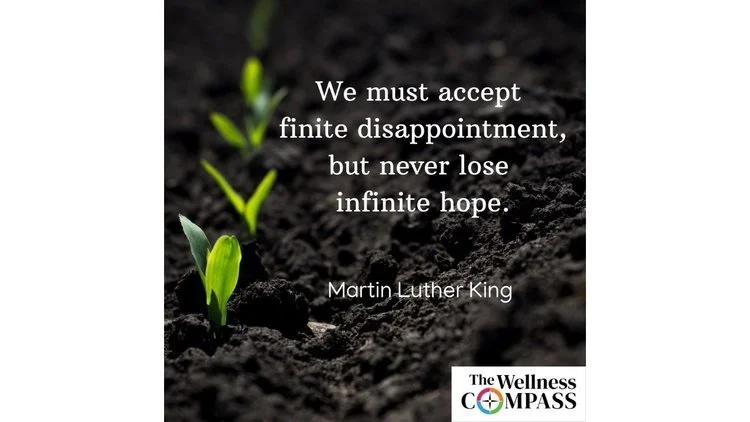Let Your Life Speak: Listening to Our Emotions
This is the second column in our series entitled "Let Your Life Speak." Our first column focused on listening to our bodies, and this week we are focusing on listening to our emotions.
The quote we share above succinctly captures what we want to say about this topic.
The first part of the quote is, "The more you hide your feelings, the more they show." When I (Scott) was younger and not as comfortable expressing my emotions, I can remember saying, "I am NOT MAD," or "I am NOT SAD," with such force that it was pretty evident to anyone listening that I was, of course, completely feeling those exact emotions. I was not yet, however, capable or comfortable in expressing them in a helpful way. The more I tried to hide or deny those feelings, the more they showed, but not in healthy or beneficial ways.
The second part of the saying is, "The more you deny your feelings, the more they grow."
Imagine standing in a swimming pool, and someone hands you a beach ball. Now imagine you try to submerge the ball and try to sit on it while it is entirely underwater. You might be able to do it for a moment, but surely it will be evident to anyone looking that you are trying to hold something down that naturally wants to come to the surface. That's what trying to repress our emotions looks and feels like. We might be able to do it in the short run, but it will be exhausting, and the pressure to let the feelings come to the surface will only grow. Eventually, everyone around you will soon recognize that you are hiding something, but will be unable to help as they won't know quite what is going on "under the surface."
The expression, "I had a good cry," speaks to the wisdom of being able to feel and express the full range of emotions. A good cry releases the pressure of our feelings, which is why we feel relief. If you think of the "motions" part of the word "emotions," it is a helpful reminder that our emotions want and need to be in motion. They need to be expressed and not bottled up.
Of course, not all expressions of emotions are healthy, and so learning to do so is a skill that takes practice, as any parent knows who is teaching their children the difference between healthy and unhealthy expressions of feelings. The key here is that emotions are not healthy or unhealthy—they simply are a natural part of who we all are. How we express our feelings is what can be healthy or not.
We have more to say on this topic in the podcast accompanying this week's column, so if you have fifteen minutes, we hope you will listen. Click here to listen.
As we say at the end of every podcast episode, we are so grateful to be walking this journey toward wellness and wholeness with you. Our feelings of gratitude are definitely feelings we want to share with others!
Making It Personal:
1. How comfortable are you with experiencing and expressing the full range of your emotions?
2. Can you think of ways in which the words of the quote we share above have been or are currently true for you?
****************************************************************************************************************
To explore your own well-being in the eight areas of wellness, you may be interested in downloading our newest FREE resource, The Adult Wellness Compass Notebook. This workbook is perfect for either individual or group use, and is a tool for self-reflection, learning, and goal setting. Click HERE to download and enjoy.
Each week Holly and Scott Stoner record the Wellness Compass Podcast. Each episode is about 15 minutes and offers a deeper dive into what appears here in the written column. You can listen to the Wellness Compass podcast in your favorite podcast app—just search for “The Wellness Compass,” and you can listen by clicking HERE and scrolling down to this week’s episode.
And speaking of podcasts, Scott has launched a new podcast this week that is just him speaking about a topic that he is passionate about—the integration of spirituality and wellness. You can listen to the newly launched Living Compass podcast by clicking on the word “Podcast” in the bar at the top of this Living Compass webpage or find it in your favorite podcast app (Apple, Google, Spotify, etc.)
Subscribe Now to Weekly Words of Wellness:
Click the button below to signup for the e-mail version of Weekly Words of Wellness. This weekly article can be shared with your community electronically and/or used for group discussion.
You can unsubscribe at any time.




